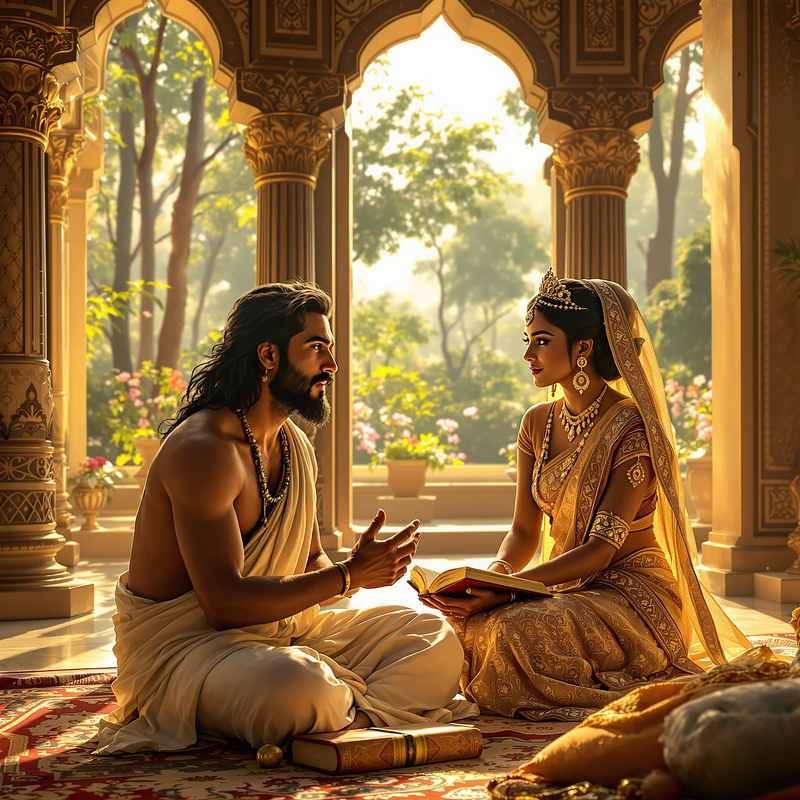8 months ago
he scene takes place in an opulent palace chamber, adorned with intricate Indian architecture and regal furnishings. The room is bathed in the warm, golden light of a late afternoon, the sunlight streaming through tall, arched windows, casting soft, elegant shadows across the room. The air is calm and peaceful, with the faint scent of jasmine and sandalwood filling the atmosphere.
In the center of the room, Kalidasa, the revered poet, is sitting on a low cushion, his posture respectful yet relaxed. He wears traditional attire, a simple but elegant dhoti and an unadorned upper garment, his long black hair slightly tousled. His expression is thoughtful, yet humble, as he speaks to the princess. A book of his poetry, bound in fine leather, rests beside him, open to a page. He gestures with one hand as he speaks, his other hand gently resting on the pages of the book. His eyes reflect wisdom, humility, and deep thought.
The princess, regal and graceful, stands or sits in front of him. She wears an ornate, richly detailed sari, the fabric shimmering with intricate gold embroidery. Her jewelry sparkles, including a tiara, earrings, and a delicate necklace, each piece radiating with light. Her face is serene and contemplative, her eyes locked on Kalidasa, listening intently to his words. The princess's posture is poised, yet there’s a warmth and curiosity in her expression, showing that she is both captivated and intrigued by the poet’s knowledge.
Behind the two figures, the palace interior is rich in detail—carved wooden pillars, lush rugs on the floor, and fine tapestries hanging on the walls. A large open window reveals the lush garden outside, with flowering plants and tall trees visible in the soft afternoon light. The atmosphere is peaceful, creating a sense of quiet intimacy, as if this is a sacred exchange of ideas.
Key Features:


